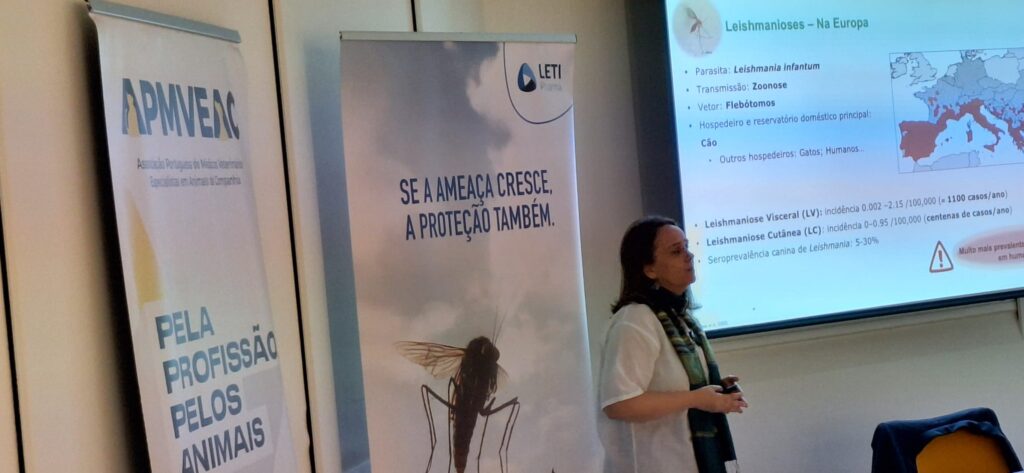ISMED-CLIM presented at APMVEAC event on leishmaniasis

On 29 June 2025, the ISMED-CLIM project was presented at a special event in Lisbon organized by the Portuguese Association of Veterinary Medicine Specialists in Companion Animals (APMVEAC).
The event, titled “Leishmaniose: quando a medicina interna e o diagnóstico por imagem se encontram,” brought together veterinary professionals and researchers to focus on the diagnosis, treatment, and prevention of leishmaniasis in companion animals. Held over two days—first in Porto and then in Lisbon—it provided an opportunity to share current data, tools, and best practices for managing this zoonotic disease.
Carla Maia, Lead Researcher at the Instituto de Higiene e Medicina Tropical of Universidade NOVA de Lisboa and European Veterinary Specialist in Parasitology, gave a presentation on canine leishmaniasis in Portugal, highlighting how ISMED-CLIM contributes to this area through research and applied fieldwork.
Her talk covered recent national data showing significant regional variation in canine leishmaniasis seroprevalence, with rates exceeding 30% in some districts. She also underlined the issue of underreporting in human cases and stressed the need for stronger surveillance and early detection.
Carla Maia introduced ISMED-CLIM’s Living Lab 4, which focuses on sand fly–borne diseases such as leishmaniasis. This Living Lab is based in Portugal and is testing early warning systems and prevention methods, with the involvement of veterinarians, shelter workers, volunteers, and dog owners. She presented the participatory research approach and tools under development to enhance prevention, including digital applications for risk awareness.
A core part of her presentation was the ongoing effort to collect diagnostic and treatment data for canine leishmaniasis from 2010 to 2024. Data sources include pharmaceutical companies, diagnostic laboratories, and veterinary clinics. This data will support ISMED-CLIM’s broader One Health strategy by informing regional policies and improving disease forecasting.
The presentation highlighted the importance of coordinated veterinary, scientific, and public health actions to mitigate the impact of climate-sensitive diseases such as leishmaniasis.
To learn more about ISMED-CLIM’s Living Labs and activities, visit the ISMED-CLIM Living Labs page.
